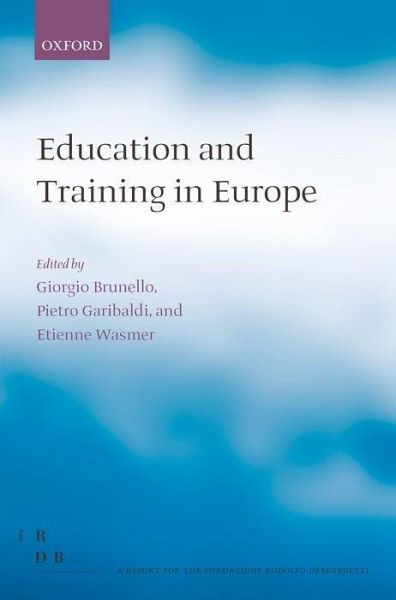
Education and Training in Europe
Versandkostenfrei!
Versandfertig in 1-2 Wochen
200,99 €
inkl. MwSt.

PAYBACK Punkte
100 °P sammeln!
While Europe is certainly one of the richest and most educated areas of the world, some of the challenges faced by the old continent are staggering: low economic growth, structural difficulties in the labour market, and increasing international competition. Politicians and policymakers may advocate different means of overcoming the potential economic decline of Europe, but most agree that Europe needs to strengthen human capital, its ultimate competitive advantage in the world economy. This book looks at the accumulation of human capital from two perspectives, first through formal education an...
While Europe is certainly one of the richest and most educated areas of the world, some of the challenges faced by the old continent are staggering: low economic growth, structural difficulties in the labour market, and increasing international competition. Politicians and policymakers may advocate different means of overcoming the potential economic decline of Europe, but most agree that Europe needs to strengthen human capital, its ultimate competitive advantage in the world economy. This book looks at the accumulation of human capital from two perspectives, first through formal education and then professional training. It provides a useful summary of the key characteristics of education and training in Europe and also asks key questions about the fundamental problems with the current educational and training systems. More importantly, the book goes on to discuss which policies are necessary to make existing education and training systems more efficient, while also making higher skills available to a wider range of people.














